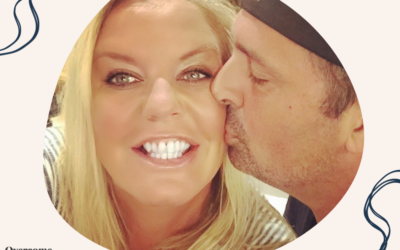It may come as a surprise to you, but most times, I don’t feel like forgiving. There have been a few horrible hurts, like the abuse inflicted on my children, that I’ve experienced, and I believed they were not forgivable.
I agonized over what was taught to me, which was to forgive, but felt like I couldn’t. The hurt was too great.
I wrestled with what I thought were my only options:
- Carry the anger for life
- Sweep it under the rug
- Pretend it didn’t happen
- Pray harder
- Ask God to take the anger away
- Try to forget it
These are things I did hoping forgiveness would magically happen as a result, even if I didn’t want to forgive. Thinking about forgiving was a distant thought because trying to survive took all my energy.
The Bible says, “As a man thinks in his heart, so is he.”
If all I’m thinking about is getting through the day and knowing I’ve been victimized, I will never engage in the option I have to forgive.
It’s difficult to forgive, but it starts with willingness and choice.
The bigger the offense, the more difficult it can be, but it is within your control and totally up to you.
Forgiveness is not about waiting for the person who has wronged you to come and ask for forgiveness. That may NEVER happen! In my story, it hasn’t happened.
Painful life experiences have taught me that I forgive because I cannot forget.
When my sister said this very phrase to me recently, “I forgive because I cannot forget,” a lightbulb went off in my mind.
We may continue to live with the hurt inflicted on us, and so we forgive because we cannot forget. You’ll probably never forget the traumatic events that happen, and you have to live with the changes they bring every day. It’s not always an easy choice to forgive, but it is possible.
“We forgive because we cannot forget” is the opposite of “forgive and forget.”
I thought to forget was the spiritual thing to do except that I couldn’t do that, so I had to forgive. Trying to forget was impossible because of the damage and life change the hurt caused.
I’ve listened to many sermons on this subject, read books, and lived with my husband, who role-modeled forgiveness.
I’ve been the recipient of forgiveness when I believed I was unforgivable.
I believed forgiveness was available for the person who had done a horrible crime, but deep in my heart, I could not forgive myself or my perpetrator.
While forgiving someone who has hurt you is essential, it’s equally important to forgive yourself when you have hurt others.
I certainly couldn’t forgive anyone else because I hated who I had become. I could not believe the God that loved me would put up with the choices I had made. Forgiveness became a distant thought even though I had been taught about it all my life.
Because I have received so much forgiveness, I eventually began practicing forgiveness after it was role modeled by Jonas, my husband.
As the quote goes, “Practice makes perfect.” In other words, keep practicing something until you have a result that satisfies you.
We have to practice to become good at anything we want to master. Think of an artist who continually works at painting the image in their mind. Think about the athlete, musician, farmer, or high achiever that does something over and over again until they have the desired result.
I think of how the artist must feel, finally getting to the finished product, standing back, admiring her work, and saying, “Wow! That’s beautiful.” Practice makes perfect.
Though I may not be an artist, I can relate to creating something beautiful and lasting. I can relate to seeing something in my mind and trying to create what I see.
Practice makes perfect means sticking with what you want and not giving up until you have what you desire. The greatest creation I ever created was Auntie Anne’s Pretzels. Practice created a great product and business that has gone around the world, and I am satisfied.
Practicing forgiveness until you’ve mastered the beauty and power of it is a life long journey and is satisfying.
As you practice, you see and feel the release of a forgiving lifestyle. Forgiveness makes you strong in spirit and character.
Today I can stand back and look at the practice of forgiveness and find great joy in knowing “I have forgiven.”
Jesus models the beauty of forgiveness. At the very end of His cruel and undeserving crucifixion, He said, “It is finished.”
I wonder if he, like an artist, saw the picture in His mind of all humankind forgiven for all the wrong they had done and would ever do.
He practiced forgiveness long before the day he spoke these words. He was ridiculed, blamed, mocked, and called all kinds of names. They told Him he was a blasphemer and satan Himself.
He persevered and loved those who ridiculed and misunderstood him.
He practiced forgiveness until the very end of His life when He said, “Father forgive them because they do not know what they are doing.”
Forgiveness is mercy extended to those who have hurt you.
In turn, you can bear all things, endure all things, and love all people.
Three significant forgiveness moments have impacted my very soul and shaped my ability to forgive. They are:
- The forgiveness of Jesus
- The forgiveness of Jonas
- Witnessing the forgiveness of the Amish during the school shooting in Nicklemines, PA, when a gunman shot ten of their children in an Amish school
What I know for sure is forgiveness is not about justice; it is about mercy.
Forgiveness is not about the behavior of the one who hurt you.
It’s not only about wanting to feel better.
It’s not about forgetting.
It’s not an emotional choice.
Forgiveness is the very foundation of a life well-lived. It is a life of peace with God, peace within, and peace with others.
As my friend said to me recently, “It’s just too hard to be mad for a lifetime. It takes so much energy! At some point, its easier to let it go”.
I never lost anything by forgiving someone who has hurt me, but I nearly lost my life by not forgiving.
When it comes to the issues in our lives like little irritations, misunderstandings, or rejections, be quick to forgive. This way, when you face the bigger issues, you’ll have practiced forgiveness and have the ability to say, “I forgive.”
Forgiveness is best practiced daily, and we continue to choose to forgive because we cannot forget.
To answer the question, “Can you forgive someone who has hurt you?” Yes, you can!
When you forgive, you surrender the feelings of anger, hatred, bitterness, and blame.
This forgiveness lifestyle the kind of life we can choose to live. Forgiveness does not make your life easy, but it makes it better.




